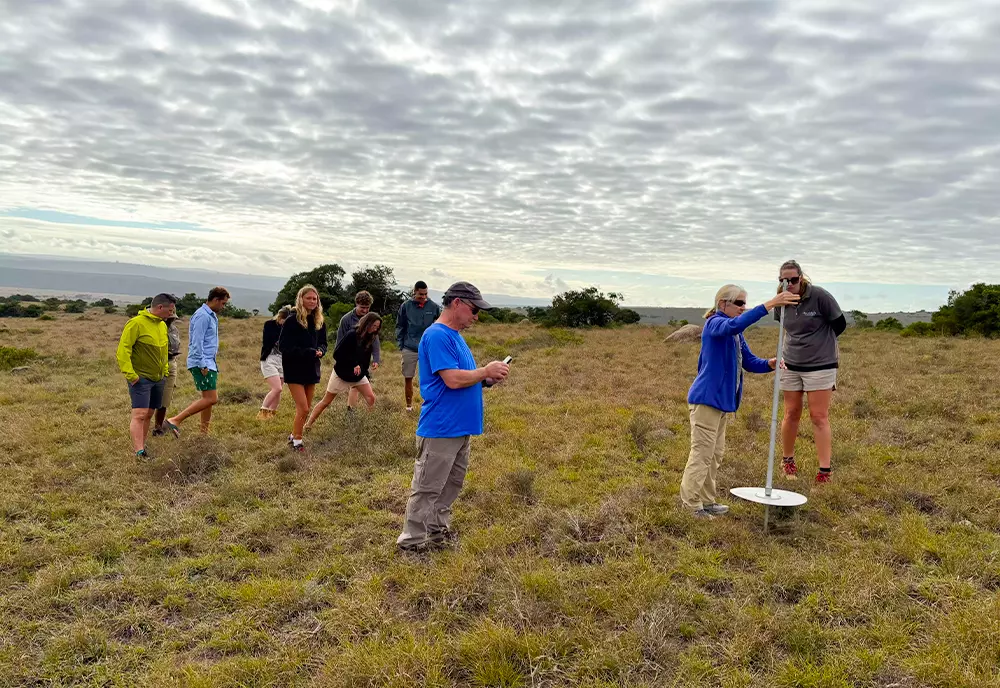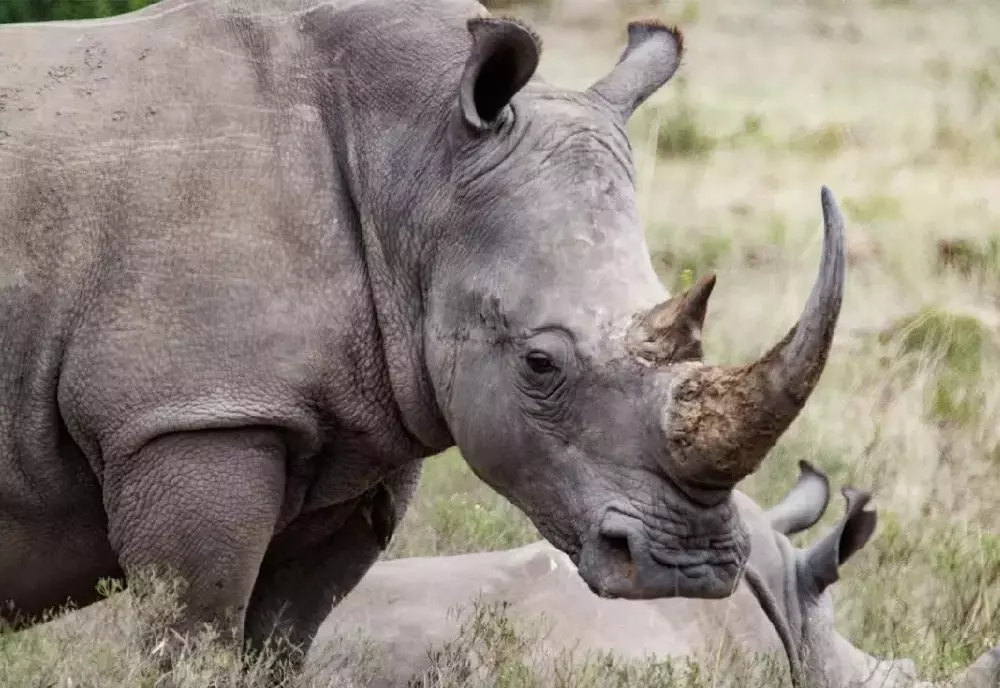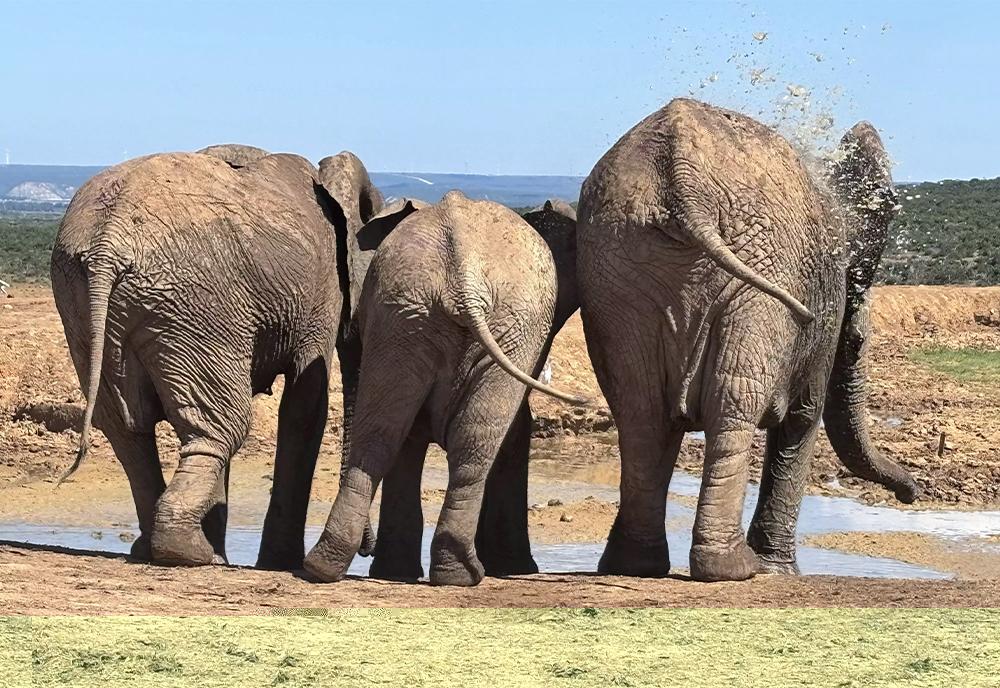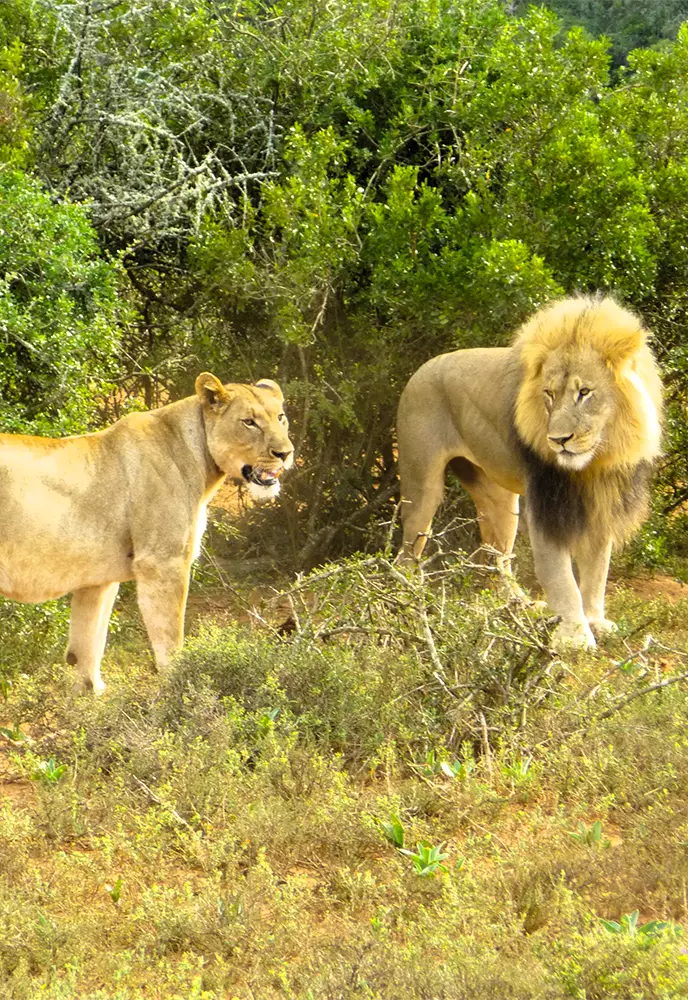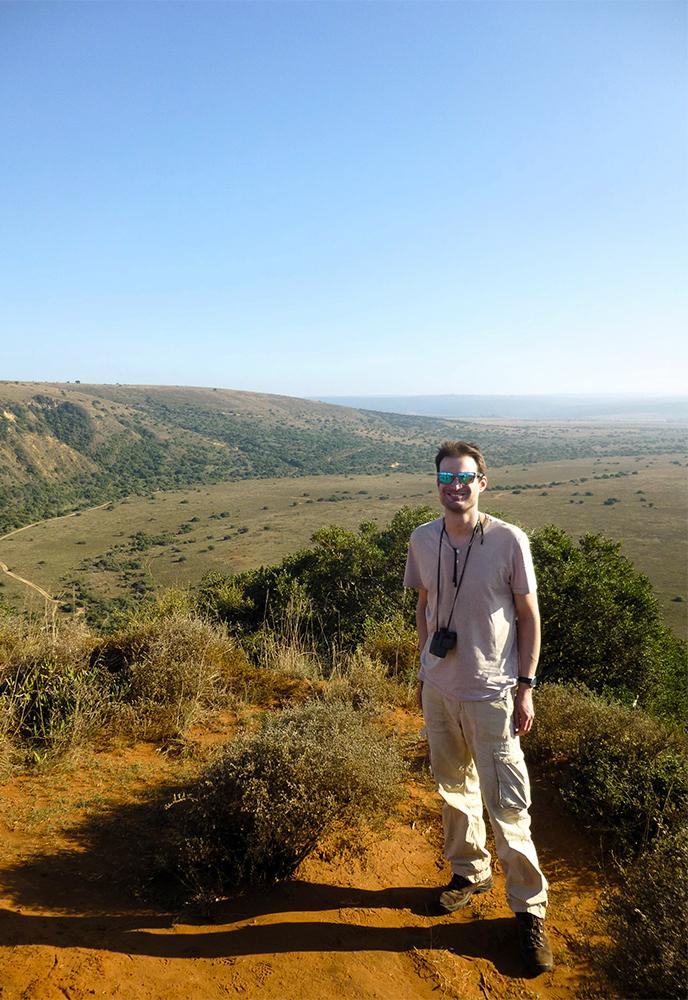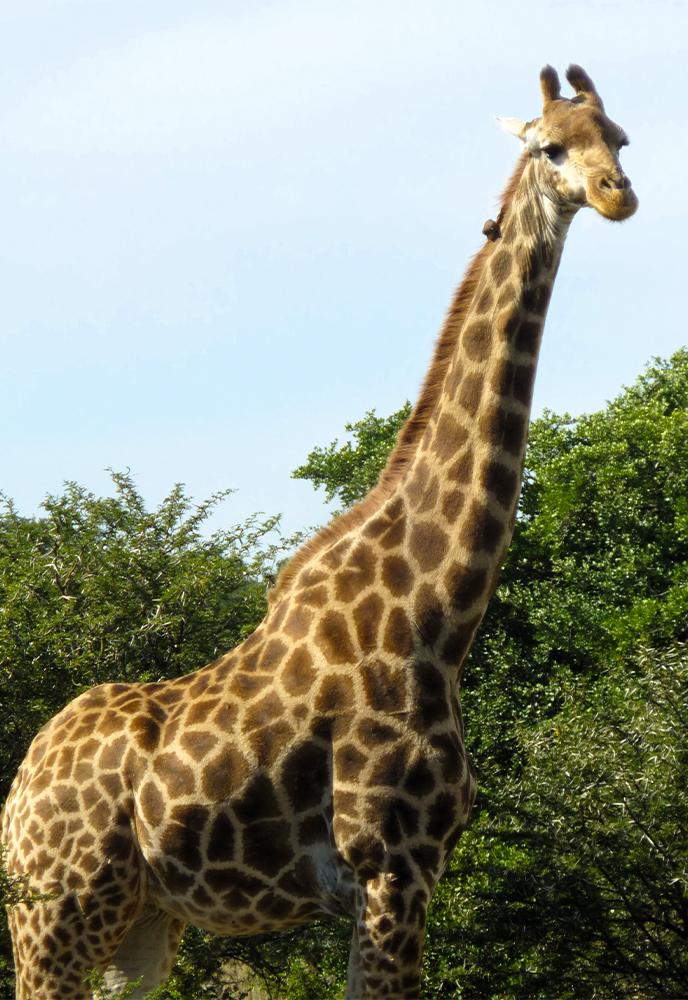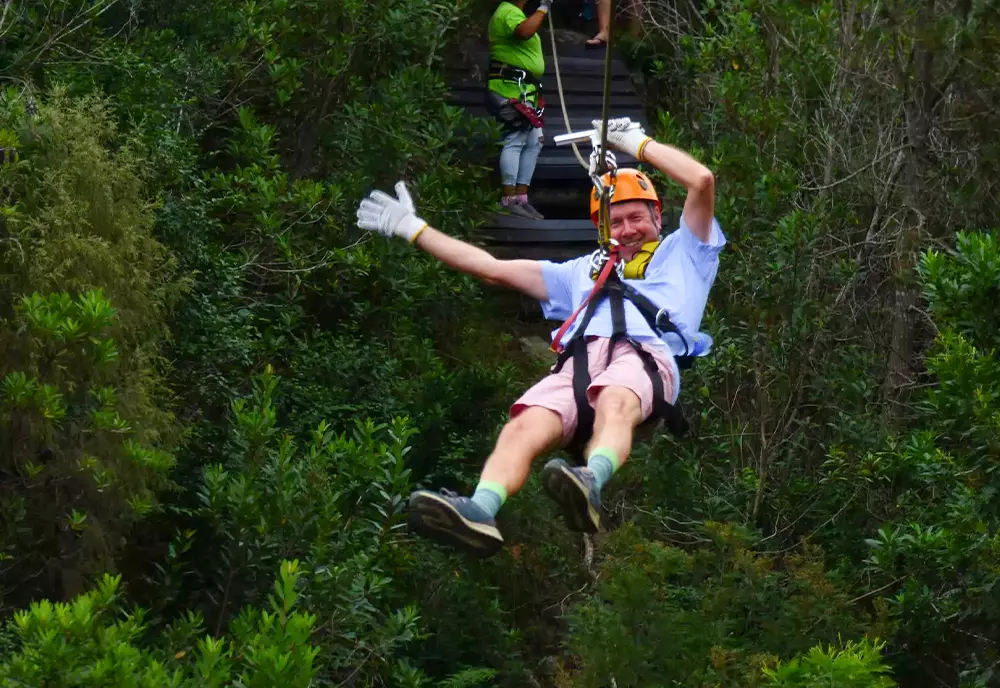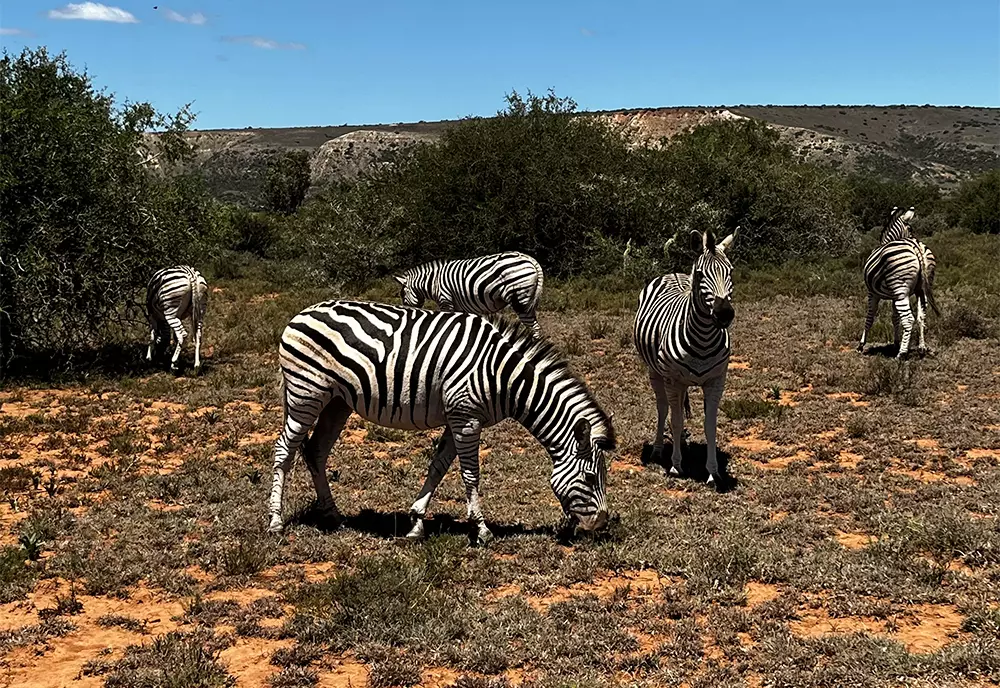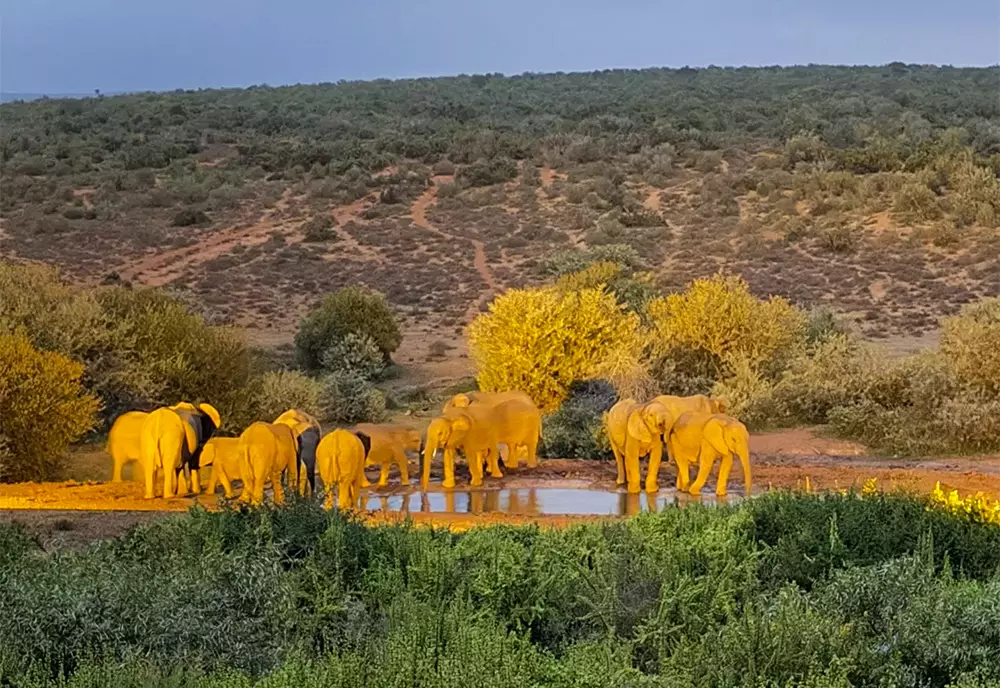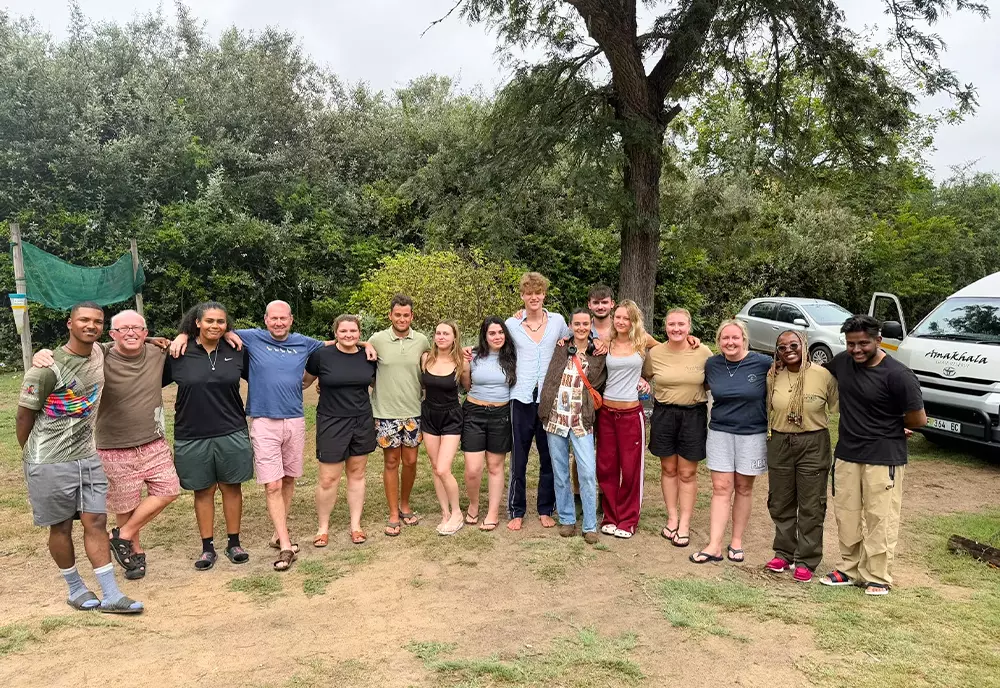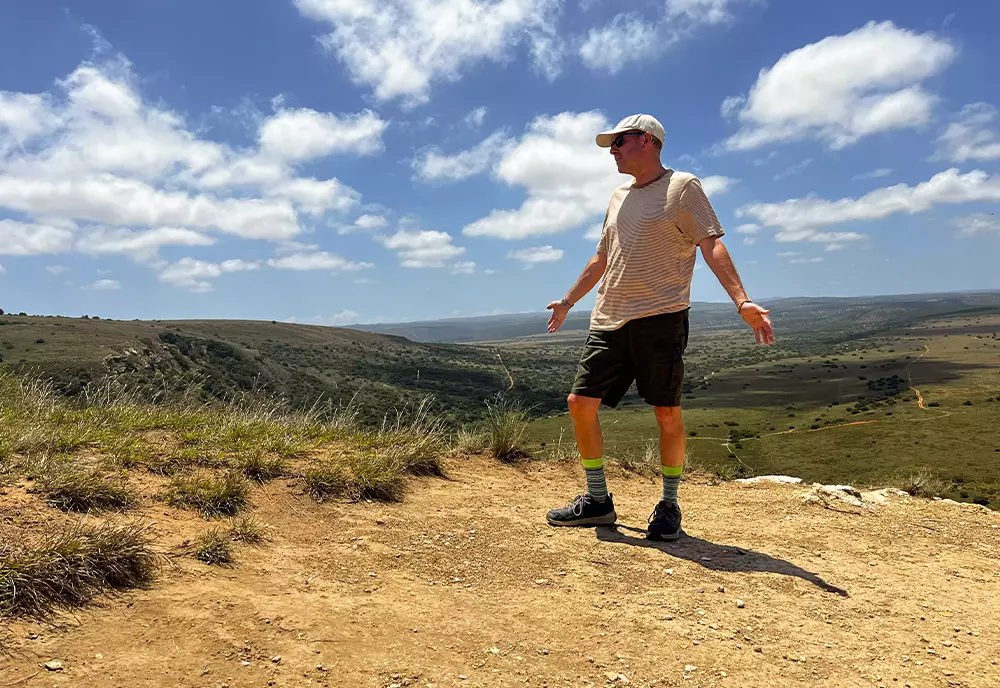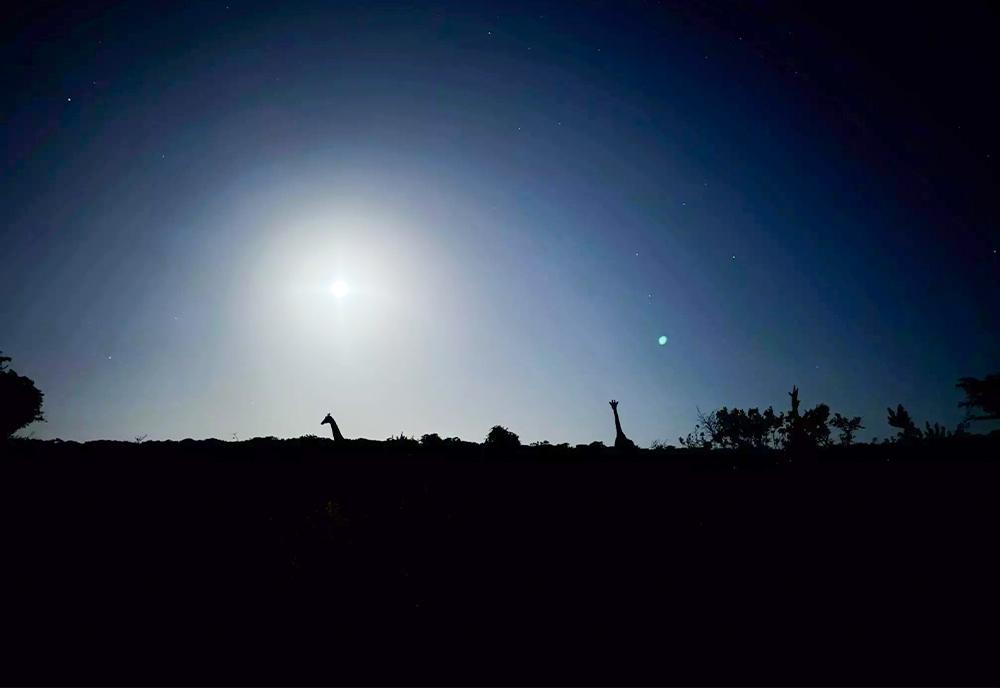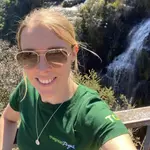

Amakhala Conservation Project
Volunteer in Africa on this 'Big 5' game reserve and help to protect a vast array of wildlife through some crucial conservation activities.
Speak To A Travel Expert
Activities
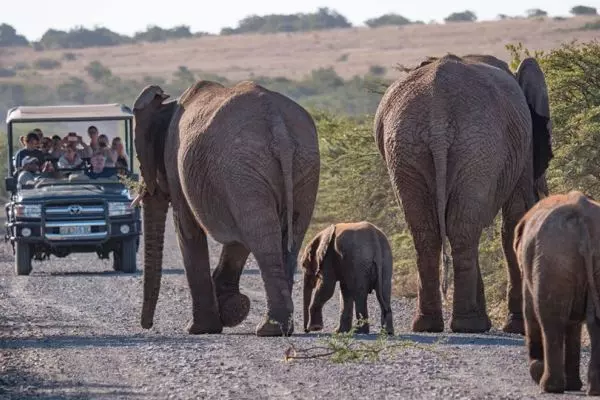
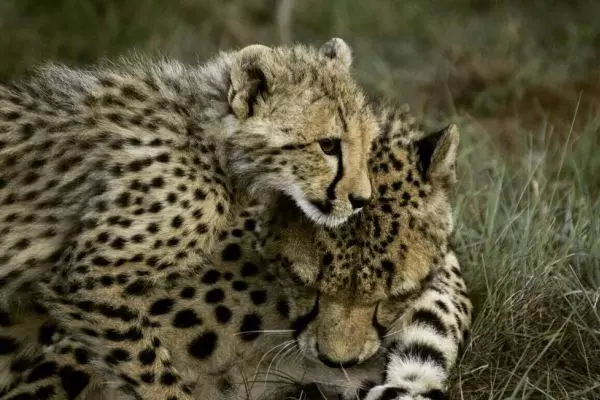
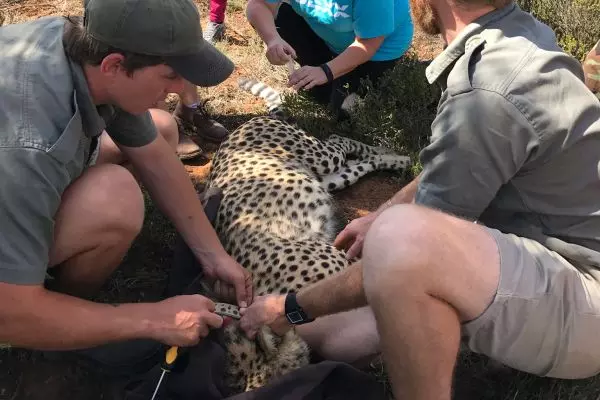
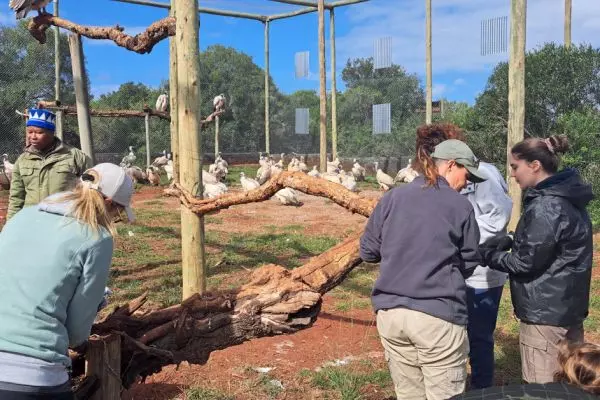
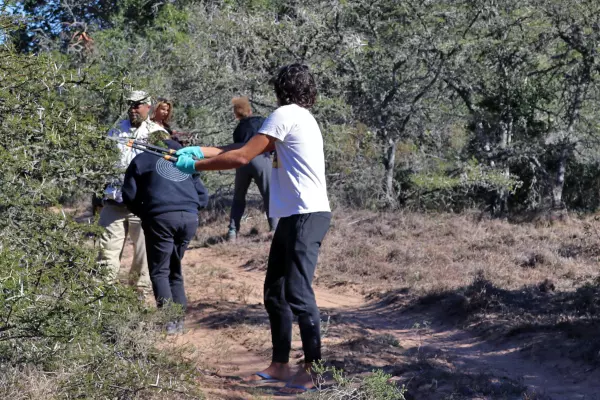
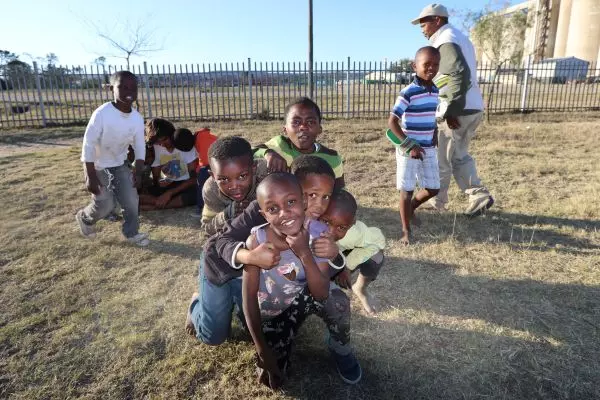
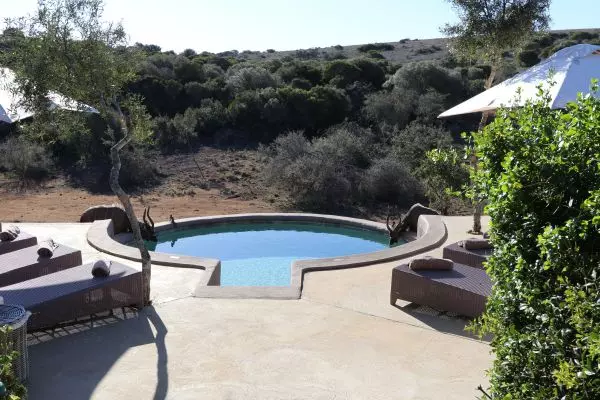
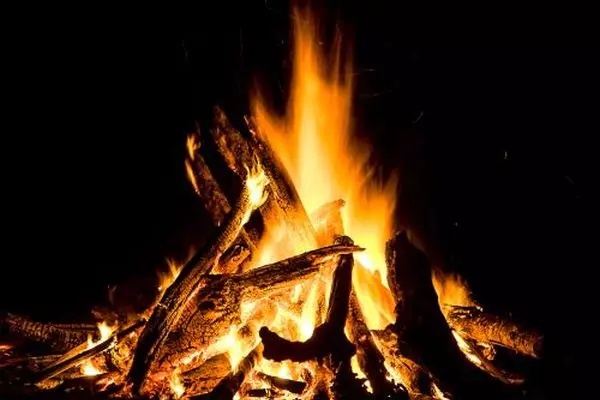
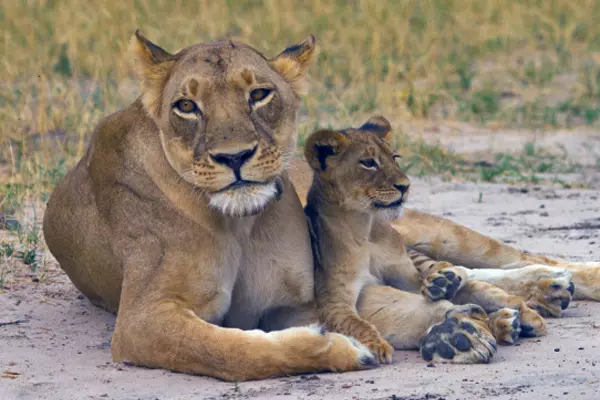
Itinerary
Durations & Prices
Accommodation
Accommodation
Throughout your time on this project, you will stay in a renovated railway station building which is now the very comfortable and unique volunteer house. The house can hold up to 16 volunteers at a time. Couples will be allocated a room together, otherwise rooms will be shared on a same-sex, twin-share basis. The house has 5 bathrooms with western-style toilets and showers; a communal living area; and a kitchen/dining area, where volunteers can prepare all meals. Outdoors, you will find a braai (barbeque) area and a swimming pool. There is also a small shop and community pub located just next door which is a great place to relax of an evening.
Meals & Beverages
Whilst food is provided on this project, you are responsible for preparing your own meals. Generally, volunteers take it in turns to cook dinner on an evening, whereas breakfast and lunch are prepared by the individual. Once every week, your group will enjoy a braai night; this is a great opportunity to experience and enjoy the traditional South African style of cooking! Please note that if you have any dietary requirements (such as vegetarianism, veganism, lactose intolerance or gluten intolerance), you must let us know well in advance of your time on the project. This is to ensure that special requests can be made to ensure that you will have the appropriate food to eat during your time on the project.
Project Details
When is the best time to volunteer?
Nearly all the activities take place year-round except for the community-based projects, as schools are closed in South Africa between mid-December and early January. Therefore, if you are keen to get involved with the community projects, you should avoid volunteering during this time. The only other factor that may impact your preference of when to volunteer is the weather.
Due to its position on the Eastern Cape, the reserve typically enjoys mild, pleasant weather throughout the year with occasional rain (but no distinct wet season). There are 2 seasons which are explained below:
Summer (November - April): During these months, daytime temperatures average 25–30°C (77-86°F), but can occasionally go up to 35°C (95°F) with January and February being the hottest months of the year. At night, it stays relatively warm, averaging 15°C (59°F).
Winter (May – October): This time of year is still very pleasant during the day with temperatures between 20–25°C (68-77°F), however, it can get very cold at night with temperatures falling to 5-10°C (41-50°F).
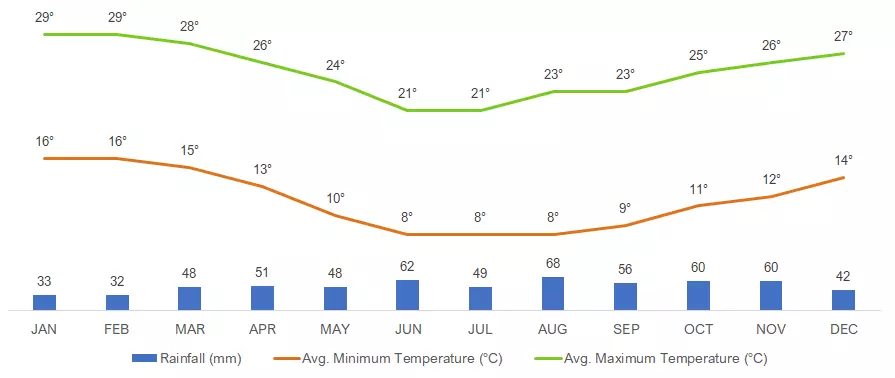
Getting There
For this project, you will need to arrive into Port Elizabeth Airport (PLZ) on your start date and transfer to the project site from there. The transfer from the airport to the project site takes approximately 1 hour and while it is not included, it can be provided for an additional cost. We offer two airport transfer options; the first is a shared transfer which departs at 3pm, meaning you would need a flight that arrives into the airport by 2pm to allow time for you to get through security and collect your luggage. The second is a private transfer which we can arrange for any time between 9am and 5pm. The shared transfer costs $75 each way and the private transfer costs $149 each way.
For your return journey back to Port Elizabeth Airport from the project site, the shared transfer departs at 7am and arrives at approximately 8am. If you take this transfer, we recommend booking a flight that departs Port Elizabeth no earlier than 10:30am. Alternatively, you can take a private transfer on your project end date at any time between 9am and 5pm.
If you are staying in Port Elizabeth before your project start date, please contact us and we may be able to arrange a pickup from your accommodation instead of the airport. If this is not possible, you will need to make your way to Port Elizabeth Airport in time for your transfer.
Visa Requirements
Citizens of most countries, including the UK, USA, Canada, Australia and most of those within the EU, do not need to obtain a visa to enter South Africa and are granted entry for up to 90 days upon arrival. You will, however, need at least 2 blank pages in your passport for the immigration officials to use and your passport must be valid for a period of at least 6 months from your date of entry.
If you are unsure of your individual visa requirements, we recommend speaking to your local South African embassy at least 2 months prior to travel.
Fitness and Skills
While there are no specific skills required to take part in this project, we do recommend that you arrive with a moderate level of fitness as your days can be long and some tasks (such as alien plant removal) can be quite physically demanding. Otherwise, all that we ask is that you arrive with a willingness to get involved with all activities and that you are willing to work as part of a team!
Vaccinations
There are no specific vaccinations required to join this project; therefore, we recommend consulting your GP/doctor or a travel clinic and following their advice on vaccinations for travel. You can also find helpful advice and information on the Travel Health Pro website.
Videos
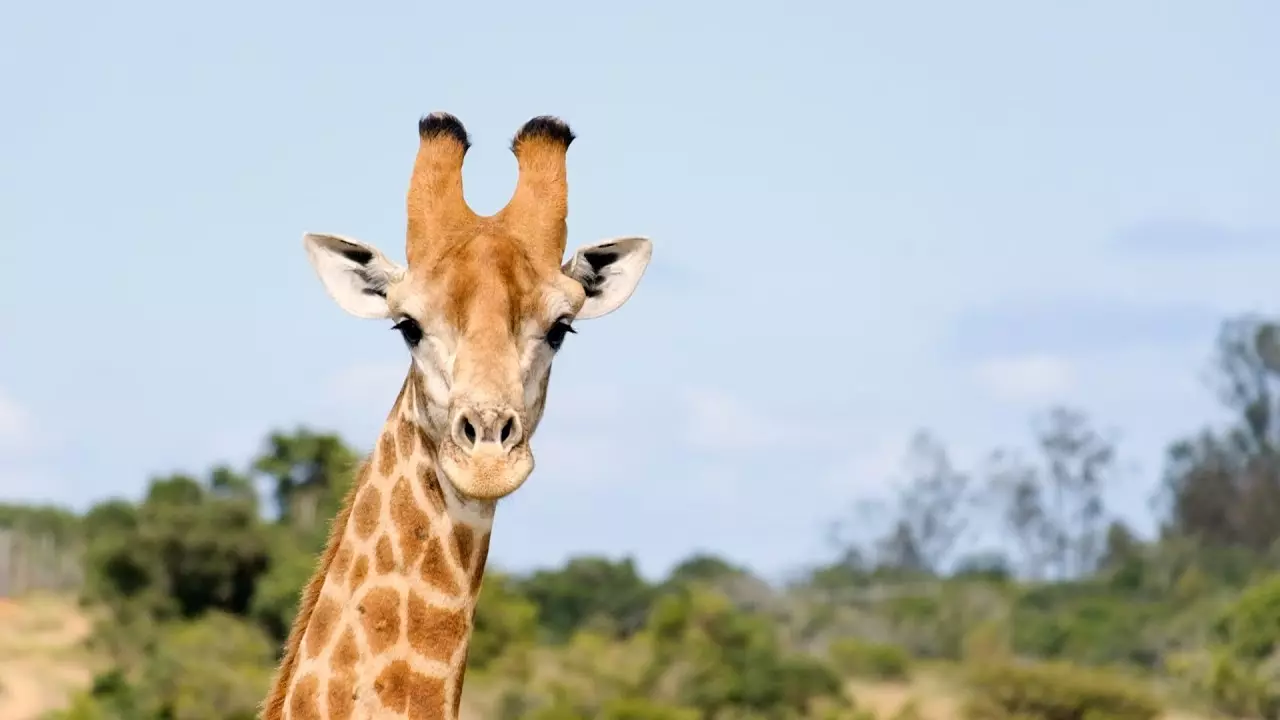
Experience the Amakhala Conservation Project
Take a look at how you can join conservation efforts at the Amakhala Conservation Project as a volunteer. With a variety of activities from research and monitoring to aquaponics, you can be sure your experience will be both unforgettable and impactful.
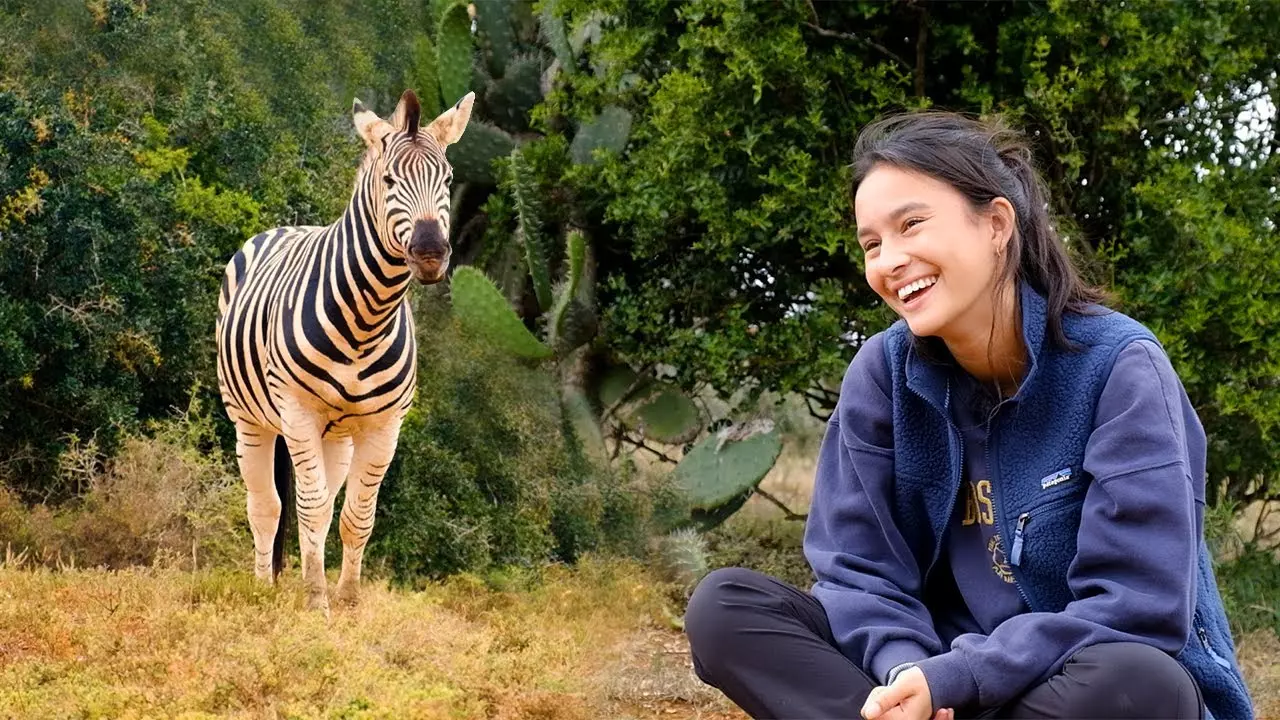
Volunteers Review Their Experience at Amakhala
Meet Julia, Roman, and Celie as they share their experiences volunteering at the Amakhala Conservation Project.
Gallery
News & Stories

2026: A Year to Watch
UPDATE | Jan 2026
Take a peek into a week with the Amakhala volunteers, from animal magic to epic sundowners and meaningful work that’s already bringing volunteer groups together. 2026 is definitely a year to watch!

Volunteers Assist in Giraffe Capture!
UPDATE | Dec 2025
Recently, volunteers had an unforgettable experience assisting the dedicated team at Ikhala Vet Clinic in capturing giraffes! From witnessing the giraffe up close to learning about the meticulous care and expertise involved in wildlife management, it was the opportunity of a lifetime that left everyone inspired and exhilarated.

Healthy Water, Happy Wildlife
UPDATE | Nov 2025
Our volunteers have been busy tackling the heat by cleaning the waterholes and troughs across the reserve. This important work helps keep the water safe and fresh for wildlife, removing harmful algae that can produce toxins, cause disease, and lead to poor water quality. By keeping these watering spots clean, volunteers help ensure that animals stay healthy and the ecosystem remains in balance!
Reviews
I didn’t really know what to expect so was very pleasantly surprised with the accommodation. This was very good - I had a single room which was appreciated being a 59 yr old woman but there were also twin rooms and one which accommodated 4 people. Good bathroom facilities (shared) and fully equipped kitchen. At the time there were only 10 volunteers so didn’t feel overcrowded, and a plunge pool was an added bonus with plenty of outdoor space. As regards the volunteer work … I was a little disappointed in that I didn’t think we were actually used to our full potential. Every day it took 45mins / 1hr to drive from the volunteer house to the reserve (so a 2hr return trip) already eating in to the days work (but this can’t be changed due to the location of the house / reserve). The work itself was actually minimal when considering a group of 10 (full capacity 16). The rebuilding of the tracks within the reserve with boulders collected by ourselves was fine but actually only took 2 hrs. The checking of the boundary fences / electric fences was again very important but only took 2 people 1min... I didn’t really know what to expect so was very pleasantly surprised with the accommodation. This was very good - I had a single room which was appreciated being a 59 yr old woman but there were also twin rooms and one which accommodated 4 people. Good bathroom facilities (shared) and fully equipped kitchen. At the time there were only 10 volunteers so didn’t feel overcrowded, and a plunge pool was an added bonus with plenty of outdoor space. As regards the volunteer work … I was a little disappointed in that I didn’t think we were actually used to our full potential. Every day it took 45mins / 1hr to drive from the volunteer house to the reserve (so a 2hr return trip) already eating in to the days work (but this can’t be changed due to the location of the house / reserve). The work itself was actually minimal when considering a group of 10 (full capacity 16). The rebuilding of the tracks within the reserve with boulders collected by ourselves was fine but actually only took 2 hrs. The checking of the boundary fences / electric fences was again very important but only took 2 people 1min to complete whilst everyone else stayed in the jeep (then we moved on to the next check point which again only required 2 people). Working with the resident ecologist woman was very interesting as she explained the importance of the varied vegetation found on the reserve and which animals benefited from it, but again the use of the measuring tool and the recordings only required 2 people so the rest of the group stood by (we obviously took it in turns). Working with the children for ‘water day’ was very productive and involved all our group in various activities. However, when we returned to the actual school to help out individual pupils with their ‘learning books’ we literally stayed for half an hour before leaving again (a journey through the reserve which had taken 2hrs to get there so a 4hr round trip for half an hours work). The very early morning ‘game’ counts was the best experience and we were able to witness the animals in their natural habitat which was fantastic. To sum up I thoroughly enjoyed my time and it was a great experience travelling through the reserve always on the look out for the animals but just felt as if our time could have been put to better use and been busier with what though I’m not sure?? Having previously led expeditions around the world which always entailed voluntary work of some sort I just feel in that respect I didn’t really accomplish that much. As an older volunteer maybe my expectations were greater and I felt they weren’t really met whereas the younger ones in the group seemed to be fine with what we achieved. Many thanks for the opportunity …. an all round great experience. (Show More)
Whether you’re a seasoned African adventurer or a first timer taking the plunge with wildlife conservation volunteering, you should definitely consider visiting Amakhala! The volunteer coordinators were highly professional and made me feel very welcome right from my arrival. Although it is a self-catering lodge, there was never a shortage of food. My wildlife highlights included lions, elephants, cheetahs, white rhinos, and cape mountain zebras which are only native to South Africa! As a volunteer, I was involved in various meaningful tasks from predator monitoring to community work with the local schoolchildren. Amakhala is also a must for any African birdwatching enthusiasts as it is home to a wide variety of bird species, including ostriches, jackal buzzards, and secretary birds! All in all, just do this – you’ll only regret it if you don’t!
This was an amazing experience combining conservation experiences and getting involved with the local community. From a safe, comfortable accommodation building, we had multiple trips into the reserve, seeing rhino’s, elephants, lions, cheetahs and multiple antelope species on an almost daily basis. We had weekly opportunities to help at the local Sidbury Primary School; this involved reading with the children and helping with physical activities. The volunteers were well supported by Nicky and her Ranger colleagues Justin and Izzy. There were plenty of activities to get involved with at the weekends including whale watching, surfing at Jeffrey’s Bay, Kayaking and zip-lining at Tsitsikamma National Park, and elephant watching at the nearby Addo National Park. This is a five star volunteer experience!
What's Included
- Accommodation
- Three meals per day
- Fruit juice, tea and coffee
- All volunteer activities
- 1 Night at the luxury lodge (if joining the project for a minimum of 2 weeks)
- English-speaking project coordinator
- A donation to the project
- Wi-Fi
- Laundry service
What's Not Included
- Flights
- Airport transfers to and from the project site (available at an additional cost)
- Travel insurance
- Alcoholic beverages, personal snacks, etc.




























